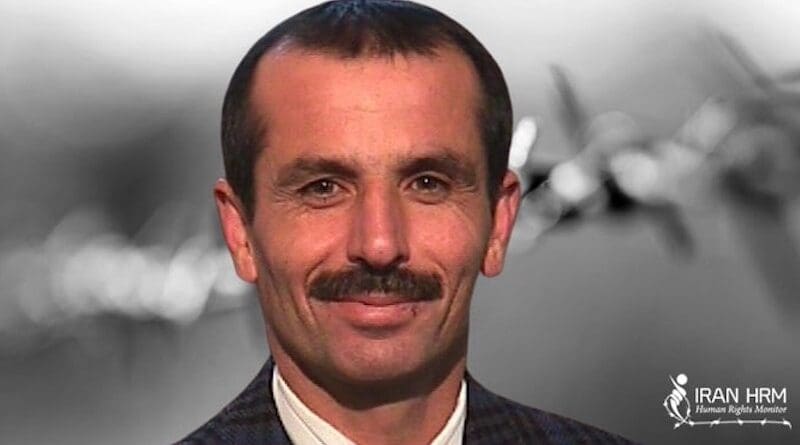Iran’s Oldest Political Prisoner Embodies Four Decades Of Fight For Freedom – OpEd
By Hamid Enayat
Gholamhossein Kalbi, one of Iran’s longest-serving political detainees, has personified a forty-year struggle for the Iranian people’s freedom. Demonstrating unparalleled resistance and determination, he has stood against Iran’s archaic regime. Initially incarcerated in 1981 for six years, his imprisonment resumed in 2001 and persists to this day.
Throughout his imprisonment, he has mourned the loss of his parents and numerous close relatives, deprived of the opportunity to bid them a final farewell. Subjected to internal exile, even his remaining family members are barred from visiting him. Suffering from various ailments, he is nonetheless denied the chance to seek hospital treatment. His sole “offense” is his sympathy for the People’s Mojahedin Organization of Iran (PMOI), the clerics’ avowed foes. The Islamic Republic has decreed that his internal exile would only cease if he disavowed his political and ideological beliefs, especially his support for the PMOI, which aims to transform Iran’s regime into a secular republic.
Following the Iran-Iraq war’s conclusion in 1988 and the compelled ceasefire, Ayatollah Khomeini, the Islamic Republic of Iran’s architect, executed thirty thousand political prisoners, who were meant to be freed post-war, under a vicious decree of his own. Thus, he exacted the toll of his defeat from the Iranian populace. According to this decree, anyone steadfast in their political and ideological convictions, notably those supporting the PMOI, was to be rapidly executed. In this way, thirty thousand individuals, 90% of whom were affiliated with the PMOI, were slaughtered to thwart significant societal reform initiated by the freed prisoners. The regime now imposes the same ultimatum on Gholamhossein Kalbi, urging him to forsake his quest for liberty. Nevertheless, he steadfastly clings to his convictions.
The Independent International Fact-Finding Mission on Iran, in its inaugural report to the Human Rights Council, highlighted that, per UN inspectors, senior state officials legitimize human rights abuses by rationalizing the conduct and operations of security forces in their pronouncements.
Recent polls in Iran revealed that excluding forced ballots, such as those from soldiers or prisoners, less than eight percent of the electorate participated in the March 1 legislative elections. Lacking genuine support, the regime inevitably resorts to violence to maintain its grip on power.
Incapable of vanquishing its archenemies following the 1981 bloodbath, the regime engaged in extensive misinformation and vilification campaigns to assert that the PMOI is devoid of popular backing and lacks a foothold among Iranians. By discrediting its rival, the regime seeks to portray itself as devoid of viable alternatives, necessitating acquiescence to its tyranny in the region.
For more than thirty years, it has actively infiltrated decision-making entities in Europe and America. The infiltration by individuals such as Eldar Mamedov into one of the European Parliament’s factions is notably significant. Also, documents revealed by the American website semafor demonstrated that the International Crisis Group think tank has played a significant role in favor of the Iranian regime during nuclear negotiations and the lifting of sanctions imposed on Iran for nearly a decade, consistently making recommendations to the Obama-, Biden-, and Trump administrations. In their investigative report published in October, Semafor clarified that Ali Vaez and his colleague Dina Esfandiary were part of an influence network formed and directed by Tehran.
In this milieu, the regime has significantly profited from a policy of appeasement, favoring those who benefit from this regime’s control over oil, gas, and arms’ trade. Meanwhile, the conflict between the PMOI and the Iranian regime endures.

